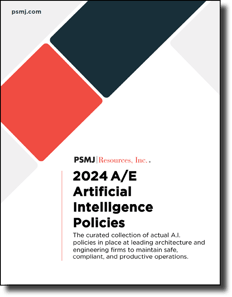In a recent episode of the Blueprints and Bytes podcast, hosts Jon Flynn and Ajoy Bhattacharya of Microsoft spoke with Frank Stasiowski, CEO of PSMJ Resources, to get his predictions for how emerging technologies like artificial intelligence (AI) and quantum computing will dramatically reshape the architecture, engineering and construction (AEC) industry in the coming years.
Frank believes AI has the potential to automate many mundane design tasks currently performed by architects and engineers. For example, an AI system could quickly generate multiple design alternatives for a bridge or building based on client requirements, databases of award-winning designs, and the properties of different materials. While human judgment and creativity will still play a role, AI could greatly accelerate the design process.
Looking further ahead, Frank predicts quantum computing, which offers computational power 400 times faster than today's computers, will have an even more transformative impact. Quantum computers could sort through vast amounts of data to optimize designs and even make judgments more reliably than humans, reducing the need for professional liability insurance.
However, the AEC industry faces several obstacles in adopting these technologies:
- High costs of advanced AI and quantum computing systems
- Resistance to change, especially among older firm leaders
- Outdated building codes and regulations that haven't kept pace with technological progress
To overcome these challenges, Frank advises AEC firms to start discussing the impact of technology in their strategic planning. Larger firms and younger, more tech-savvy leaders are already investing heavily in AI. Firms risk obsolescence if they don't consider how to leverage productivity-enhancing tools.
Other recommendations include:
- Appointing young professionals to leadership boards to infuse forward-thinking perspectives
- Making Chief Information Officers partners to retain top tech talent
- Updating building codes to enable the use of cutting-edge design and construction methods
The AEC industry is on the cusp of a technological revolution that will transform how buildings and infrastructure are designed and built. While change may not happen overnight, firms must start preparing now for an AI- and quantum-powered future. By doing so, they can deliver projects better, faster and cheaper to meet escalating client demands in the years ahead.
PSMJ’s advice on what to do next:
 Clearly communicating to employees your policies and guidelines for AI experimentation and assigning an “AI mentor” in your AEC firm can help skeptical or cautious personnel become comfortable with the technology. We recently surveyed the AEC industry to understand how they are approaching AI and compiled their AI policies into a collection you can use to craft your own. Order AEC AI Policies here.
Clearly communicating to employees your policies and guidelines for AI experimentation and assigning an “AI mentor” in your AEC firm can help skeptical or cautious personnel become comfortable with the technology. We recently surveyed the AEC industry to understand how they are approaching AI and compiled their AI policies into a collection you can use to craft your own. Order AEC AI Policies here.


